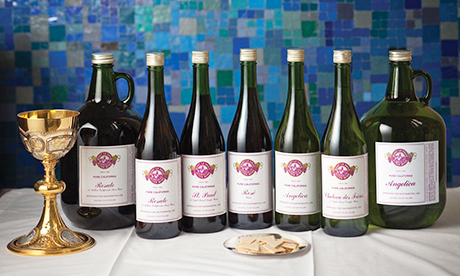Police and anti-smuggling authorities have confiscated nearly 8,000 bottles of altar wine in Canada’s predominantly French-speaking province of Quebec.
The operation concentrated on three businesses in the eastern Canadian province that distribute sacramental wine to churches.
At issue was a longstanding, tacit agreement between the wine suppliers and the provincial government. Police now say the agreement is illegal.
The sale of alcoholic beverages in Quebec is handled almost exclusively by the province’s liquor control board, the Société des Alcools du Québec (SAQ).
Police suspected that the distributors of the communion wine were selling their product illegally to individuals.
To ascertain this, they used agents posing as clients in charge of parishes.
“I was asked: is this for liturgical use? And I confirmed that it was,” Jacques Laroche, owner of La Procure Ecclésiastique, a religious goods store, told La Presse.
In the absence of further verification, the police seized the bottles of altar wine.
“This is an attempt to prevent the practice of religious worship,” Laroche said.
The vast majority of altar wine in Quebec is imported from two California manufacturers.
To circumvent the SAQ monopoly, the merchants have used licenses and warehouses located in the neighbouring provinces of Ontario and New Brunswick.
But Quebec authorities seem intent on putting an end to this system.
“The SAQ chose to become the supplier of altar wine,” announced Pierre Murray, the priest who serves as the AECQ secretary general.
The Société des Alcools du Québec must now select wines that meet Rome’s criteria for use at the Eucharist and avoid a shortage.
The wine must be natural and uncorrupted; that is, not mixed with sugar or other substances.
Msgr. Murray believes the issue could be resolved quickly since the SAQ may already have wines that could be suitable for worship, especially in its natural wine selections.
The Archdiocese of Quebec said it does not envision a shortage for now, as parishes still have stocks. At the same time, the COVID-19 pandemic “is reducing the need for Mass wine these days,” explained the director of communications, Valerie Roberge-Dion.
Sources
Additional readingNews category: World.




